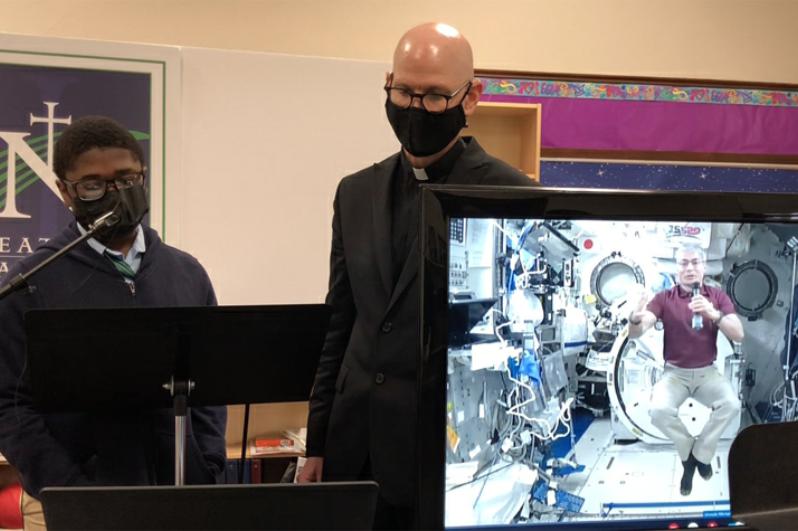One thing is necessary: The apostolic mission of the Catholic School
Are Catholic schools places of refuge or centers for mission? Many people may come to our schools simply to escape the negative influences of the culture or the ideology permeating public schools. Even so, when they arrive, they should find a mission-focused community of disciples, living out an apostolic mandate to share the good news of Jesus Christ. Even if enrollment at a Catholic school cannot make the negative influences of the culture disappear, as places where Jesus is encountered, they can offer healing, transformation, and hope -- something that I experienced as a seventh-grade transfer student many years ago.
Although it is common for Catholic schools to develop mission statements, their mission has been given to them by Jesus as part of the great commission: "Go therefore and make disciples of all nations, baptizing them in the name of the Father and of the Son and of the Holy Spirit, teaching them to observe all that I have commanded you; and lo, I am with you always, to the close of the age" (Mt 28:19-20). As an apostolate of the Church, the Catholic school is one concrete expression of the Church's general mission to form disciples. Education flows naturally from this task, as the word "disciple" literally means "student" and Jesus says that his disciples must be taught. The school is a place to learn the Christian life.
Archbishop Samuel J. Aquila has identified discipleship as a central task for Catholic education, writing within the Archdiocese of Denver's framework "School of the Lord's Service": "Jesus truly is the reason for the existence of our Catholics schools, and he wants to guide us in everything that we do. ... Our schools must be places to encounter Jesus; nothing is more important. What does it mean to become a disciple of Jesus Christ? It means that we have truly encountered and met Jesus as the Son of God, experienced his love and mercy personally, and have accepted him as our Lord, living in a committed and daily relationship with him." A Catholic school graduate should have the opportunity to meet Jesus and be given regular opportunities to grow in friendship with him.
Although this has been the mission of the Catholic school throughout the centuries, forming disciples today brings unique challenges. Some educators are tempted to give up as they confront the growing divide between the Church and culture, which pulls parents and students ever further from a Christian worldview and way of life. On the other hand, this divide makes the school's mission even more important, because young disciples need more formation and support. In the past, Catholic schools had much more support for their mission, including from the surrounding culture. Today, we can no longer presuppose knowledge of the Gospel. We have to propose it explicitly, sharing the kerygma (the message of salvation in Jesus) and inviting teachers, students, and parents to a deeper faith, one that is internalized and lived out.
Discipleship seeks to bridge the gap between faith and culture, helping what we believe to take shape in everyday life. The Vatican's Congregation for Education, in its document called "The Catholic School," even laid this out as the primary goal of the Catholic school, whose "task is fundamentally a synthesis of culture and faith, and a synthesis of faith and life: the first is reached by integrating all the different aspects of human knowledge through the subjects taught, in the light of the Gospel; the second in the growth of the virtues characteristic of the Christian." A Catholic student-disciple is taught how to think from a Christian vision of reality and develops virtue to be able to live in accord with that vision.
An apostolic school cannot solve all of the problems of our society or even of the family, although it does take seriously its call to help its students live in friendship with Jesus, the one who can solve our problems. Catholic education offers the one thing that is necessary (Luke 10:42) that when possessed will help everything else to fall into place. Putting Jesus first strengthens everything that is done in the school: instruction, by drawing students to the Word who made the universe; character formation through the grace that he gives; preparation for the future by being ready to serve; and building a community united in faith and charity. An apostolic school has a lot to offer the world, giving it what it truly needs most.



















